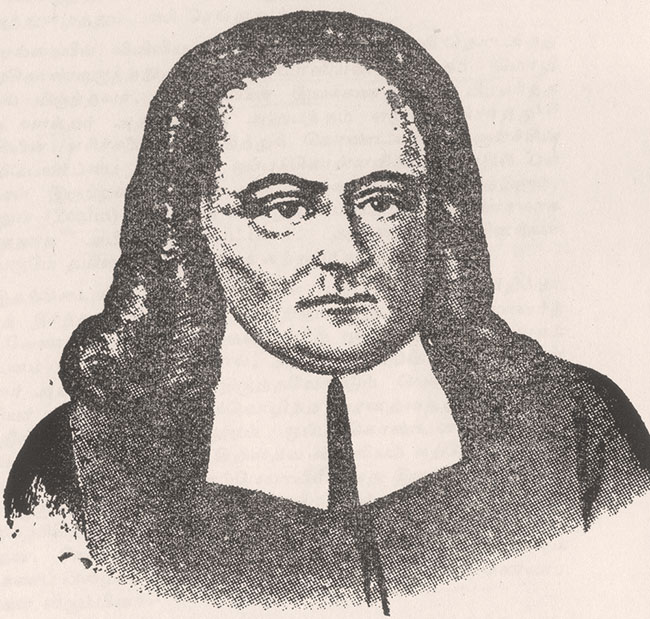FABRICIUS RUINED HIMSELF TO WIN SOULS IN INDIA

[Above: Johann Philipp Fabricius—Karthick Nambi "The Man Who Changed How Tamil is Sung — Johann Philipp Fabricius" Public domain because of age.]
JOHANN PHILIPP FABRICIUS was a superb translator. His abilities as an administrator were less admirable. Hundreds of years after his death, his Tamil Bible and hymns are still admired. But for eighteen months shortly before his demise, he was in prison for mishandling funds.
On this day, 8 September 1741, German-born Fabricius arrived in India to join mission work in progress in Tranquebar. Trained at Halle, the most evangelical of Germany’s universities, he was eager to win souls, and he set about learning the local languages. By Good Friday of the following year (31 March), he was able to preach his first sermon in Tamil. Eventually he could also preach in Dutch, English, and Portuguese—all in use in that area.
In December 1742 Fabricius took over the Vepery station started by Benjamin Shultz near Madras. Britain’s Society for the Propagation of Christian Knowledge funded this work. Fabricius recognized that the Tamil Bible begun by his predecessors was faulty and he began revisions. Mutthu Kistna Moodely assisted him in linguistic work which included hymn translations. The duo also prepared a Malabar-English dictionary, but paper shortages delayed publication.
France and England fought over India. During the war, Fabricius shared the hardships and dangers of his converts. In 1746 and again in 1758, he had to abandon the Madras mission and take refuge with nearby Dutch. In 1748 the British confiscated a Catholic church and other buildings which they then turned over to the Protestant mission because Catholic leaders had betrayed them [the British] to the French. In 1758 Fabricius and Christians at the mission lost everything, plundered by France’s Muslim allies. When the British defeated the French, they moved a confiscated French printing press from Pondicherry to the Vepery mission. Christian publications flowed from it.
The mission’s successes and troubles continued. In the 1760s the missionaries had to flee from Vepery several times when Indians tried repeatedly to drive out the British. A drought and famine in the mid-1770s strained mission resources. The missionaries did all they could to feed and clothe the poor, and stretched their own small incomes to breaking.
Muslims had taken a large sum of money from the mission in 1758. Some of it was borrowed and Fabricius could not repay. This began his financial downfall; compound interest drove the debt higher and higher. Relying on the advice of Indian accountants, who were not above trickery, he became increasingly entangled in his financial mess. Later the missionaries borrowed money at interest and reloaned some of it, but the loans were insufficiently secured. When borrowers did not repay, the mission found itself involved in a debt of at least two thousand pagodas ($400,000 or more in 2021 U.S. dollars).
The missionaries dispatched sunny reports that made no reference to their tottering finances. But with a return of regional famine in the 1780s, the jig was up. In 1787 Fabricius’s main creditor sued. Unable to repay, Fabricius was sentenced to prison. He emerged a broken man and died in Madras in 1791.
He had a hand in converting seventeen thousand Indians and Portuguese. A few of his Tamil hymns are still sung, and his Tamil Bible is known as “the golden version.”
—Dan Graves
----- ----- -----
For more about faith in India, see Christian History #87, India: A Faith of Many Colors






